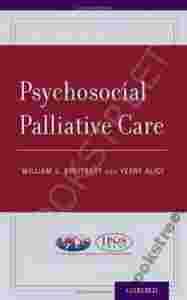|
One of the most challenging roles of the
psycho-oncologist is to help guide terminally-ill
patients through the physical, psychological, and
spiritual aspects of the dying process. Patients with
cancer, AIDS, and other life-threatening illnesses are
at increased risk for the development of major
psychiatric complications, and have an enormous burden
of both physical and psychological symptoms. Concepts of
adequate palliative care must be expanded beyond the
current focus on pain and physical symptom control to
include the psychiatric, psychosocial, existential, and
spiritual aspects of care. The psycho-oncologist, as a
consultant to or member of a palliative care team, has a
unique role and opportunity to fulfill this promise of
competent and compassionate palliative care for those
with life-threatening illnesses. Psychosocial Palliative
Care guides the psycho-oncologist through the most
salient aspects of effective psychiatric care of
patients with advanced illnesses. This handbook reviews
basic concepts and definitions of palliative care and
the experience of dying, the assessment and management
of major psychiatric complications of life-threatening
illness, including psychopharmacologic and
psychotherapeutic approaches, and covers issues such as
bereavement, spirituality, cultural sensitivity,
communication and psychiatric contributions to common
physical symptom control. A global perspective on death
and palliative care is taken throughout the text, and an
Appendix provides a comprehensive list of international
palliative care resources and training programs. |
|

